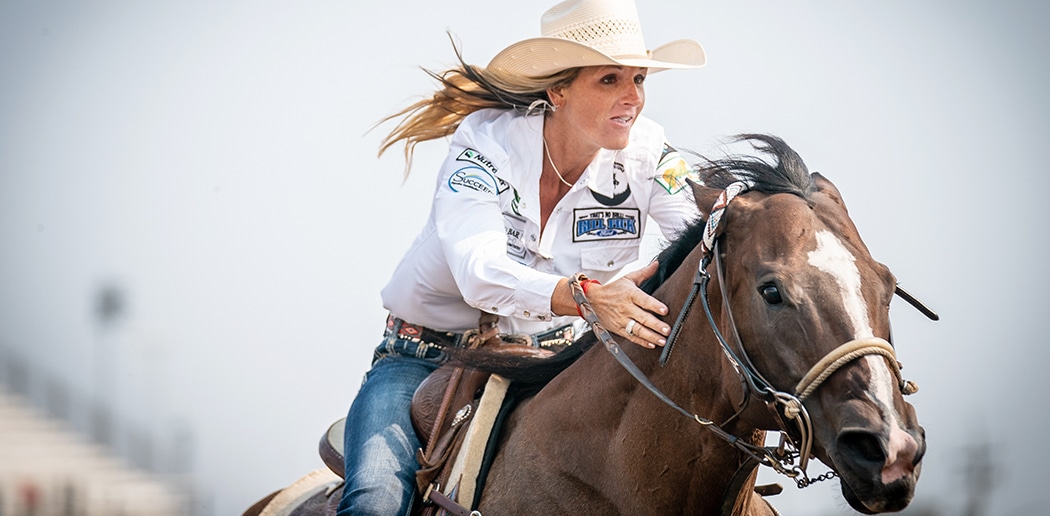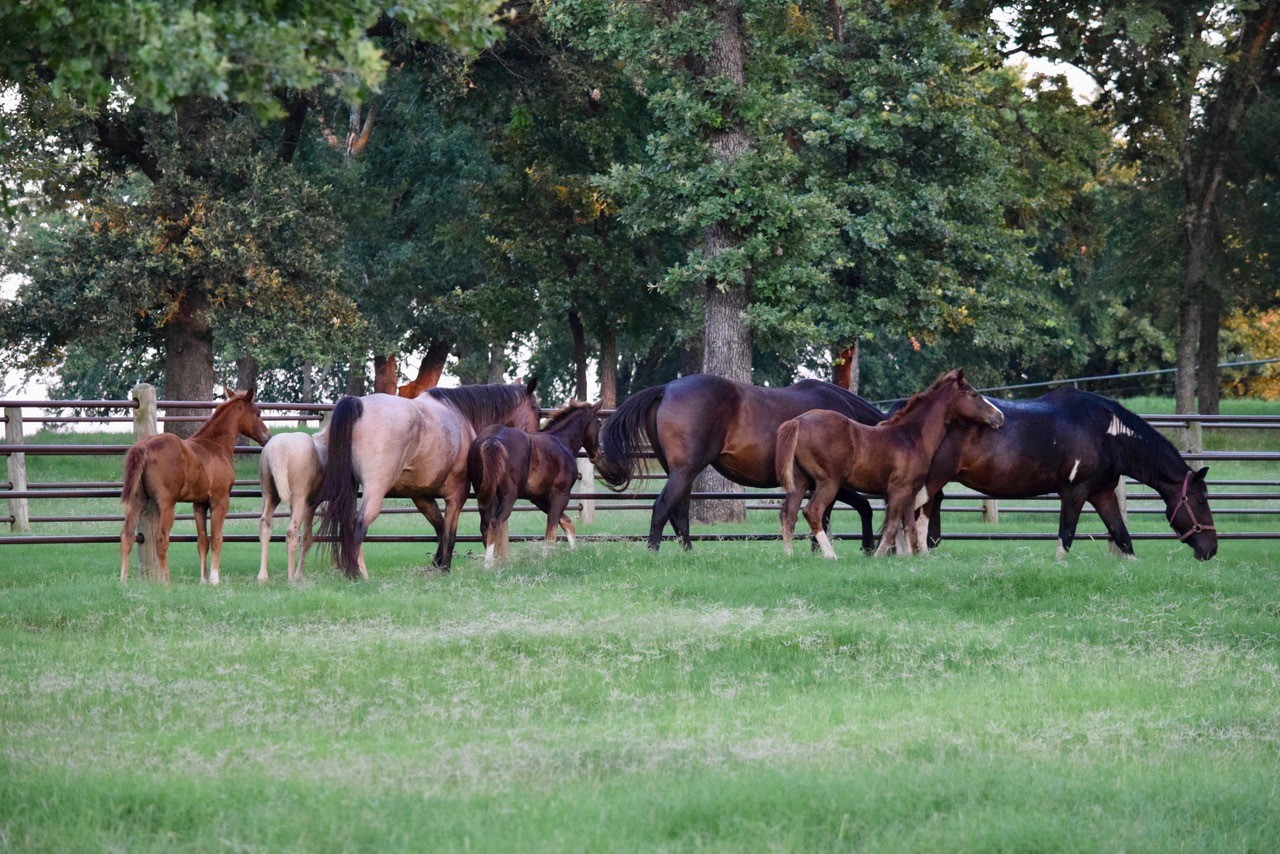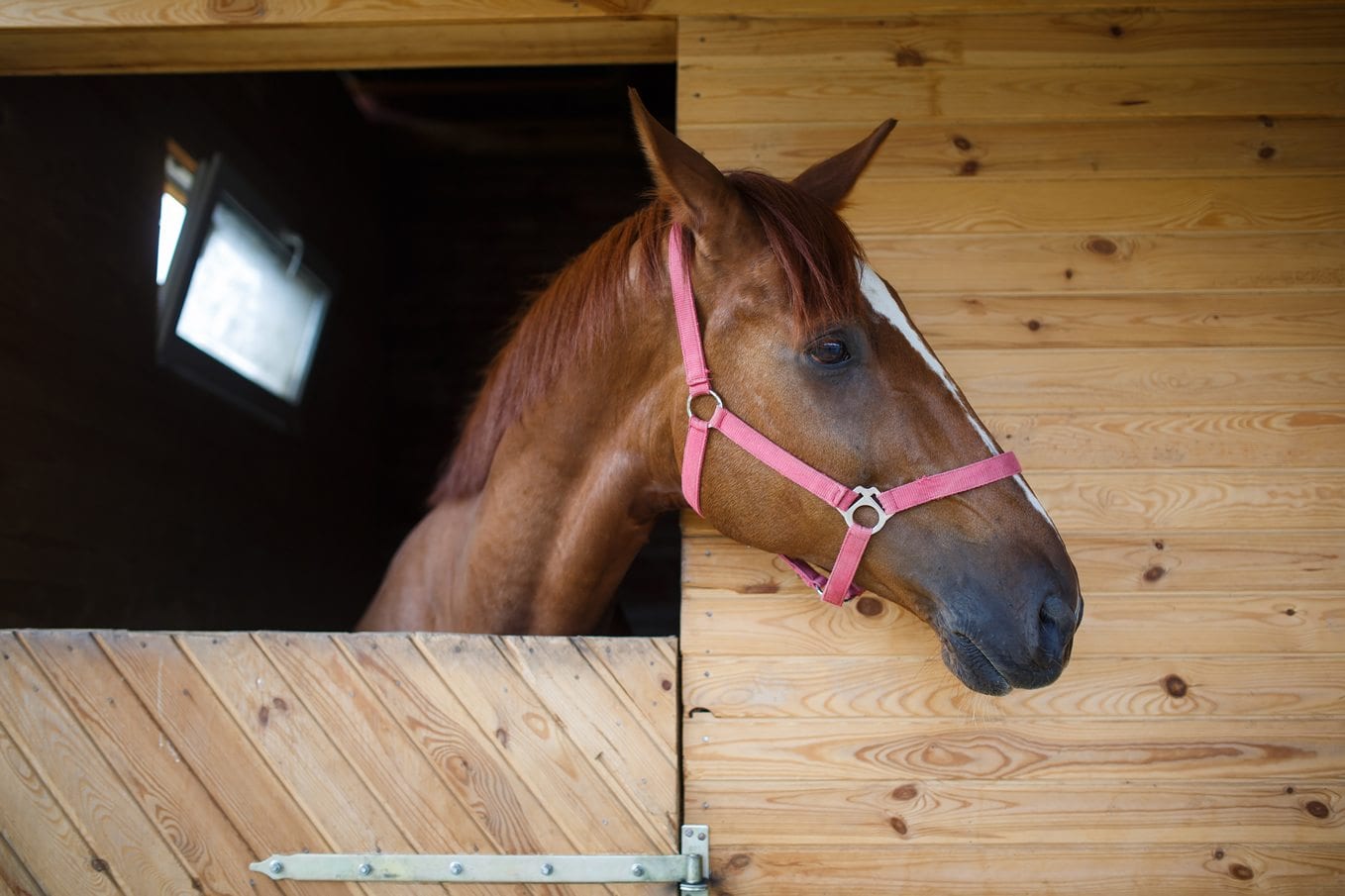Your horse’s diet plays a pivotal role in how fast it can be and how consistently it can run at its best. If you and your horses are barrel racing, breakaway roping, or competing in any other speed event, you need to feed a diet that specifically supports anaerobic exercise.
While feed is far from the only thing that dictates a horse’s success, it certainly plays a central role. Choosing the right feed to meet nutritional needs and managing for good digestive health impacts overall physical wellness and ability to perform, focus, behavior, recovery, immunity and more. All the best training and jockeying is useless if your horse lacks the right nutrition and has digestive problems that make it uncomfortable, irritable, and unwilling to eat.
Get up to speed on the popular feeds and feeding practices that aren’t helping your horses and the unique dietary requirements you should be addressing in your feed program.
Problems With Common Feeding Practices
Unfortunately, the conventional wisdom for what and how to feed performance horses goes against what’s healthy and effective for the animal.
First, because horses that race have high energy demands, most people feed popular sweet or complete feeds with the idea that these will help them to maintain weight and obtain the energy they need. However, most of these common grain feeds are too high in “sugar,” or what’s more technically known as NSC (non-structural carbohydrates). It’s the equivalent of feeding an athlete large bowls of sugar cereal for breakfast and dinner, and then expecting them to be at peak health and nutrition to perform. We know that doesn’t work for us … and it doesn’t work for our horses, either.
Take a look at the nutrition information on your feed bag. To find the NSC value, add together the numbers for dietary starch and dietary sugar. For the general horse population, equine veterinarian and barrel racer Leah Mitchell, DVM, recommends that this NSC value should be under 20. For horses that need to have sugar restricted in their diets for health reasons, it should be below 15.
Large grain-based meals or those too high in NSC can contribute to problems including, but not limited to:
- Sugar highs and crashes that negatively impact focus and behavior
- Undigested sugars and starches reaching the hindgut, interfering with the natural fermentation processes required for a healthy pH and microbial balance and more
- Inflammation in the body, and even tying up in horses
Second, too many race horses don’t receive adequate forage and opportunity to graze in their diets. Horses should have free access to forage, such as a quality hay, provided around the clock. The majority of a horse’s energy and nutrition should come from forage. Plus, the equine digestive system requires this constant trickle of fibrous feed for healthy functioning. Restricting forage leads to stomach and hindgi tract health problems.
It’s important to feed most horses a balanced complete feed to ensure they are getting the nutrition they require in a healthy way. It’s also important to evaluate horses on an individual basis to identify their needs based on breed, body type, and discipline. Speed horses have specific dietary requirements that differ from horses in slower or more aerobic disciplines.
Different Feed for Different Types of Equine Athletes
Feeding a short distance sprinter like a barrel horse or breakaway roping horse is not the same as feeding one that typically does longer and slower aerobic movement. But, a barrel horse still needs the proper fuel and strong slow-twitch muscles for long warm ups and training sessions. After all, a well-conditioned horse will spend much of its time in aerobic exercise.
Oftentimes, the nutritional needs of a horse doing light work can be met simply by feeding good quality forage and a ration balancer without grains or concentrates. While forage may provide all the nutrition needed by horses used for light work, horses in moderate or intense work will likely need the supplementation provided by energy-dense feeds.
Most performance horse’s caloric needs can be met with a combination of hay and grain. However, it is often better to replace grain with fat wherever possible. As previously mentioned, grain can cause a litany of problems from an excess of carbohydrates. Fat is more energy dense than carbs, therefore the horse will have more energy with less feed. Fat is particularly beneficial in the summer, as it helps to keep the horse cool because it does not produce as much heat while being digested.
Fueling Anaerobic (Fast-Twitch) Exercise
When it comes to the dietary needs required to fuel anaerobic (fast-twitch) exercise, there are three main nutrients of focus: protein, glycogen, and healthy fats.
Glycogen
For the most part, anaerobic exercise is fueled by the burning of glycogen, which is stored in muscle. Glycogen is produced naturally within the horse when they eat forage. However, they are often given supplements or “high glucose” feeds to help get their glycogen levels back after competition. The intention is to get them back to their base levels and ready for the next competition.
Protein
Protein plays an important role in getting your horse ready to compete as well. Protein serves to grow, build, and repair muscles. A high protein diet will help to give your horse a rounded, muscular appearance that is a hallmark of a good competition horse. Having sufficient protein levels also serves to prevent the horse’s body from tearing down its own muscles in order to utilize the amino acids stores. However, it does not provide a good source of energy for the horse.
Healthy Fats
Healthy fat also plays a significant role in your horse’s performance. Fat can be used as a primary source of energy for slow-twitch exercise, but only after your horse has adjusted to using it as such. Typically, this process takes about 12 weeks. Once adjusted, horses are able to utilize fat to provide the energy needed for a workout. This is important because it saves glycogen from being used for less strenuous activities so that it is saved for when it is needed most.
Additionally, by using less glycogen, they will require less glycogen in their feed. This is known to promote digestive health, a strong immune system, less inflamation, and many more health benefits.
Get Your Horse Feeling Its Best on SUCCEED
SUCCEED Digestive Conditioning Program supports good digestive health in horses, ensuring they get the full nutrition available from your carefully designed feed program. Some of the benefits of using SUCCEED include:
- Keeping horses feeling good and eating well
- Maintaining stomach and hindgi tract health
- Supporting nutrient absorption to get the most from feed
- Moderating the release of sugars in feed to prevent sugar highs and crashes
SUCCEED is a daily-use, long-term program. It takes time to establish optimal gi tract health in horses that need set right, and must be fed daily in order to continue to maintain that health long-term.
Digestive health is a constant in the battle to keep your horse performing at its best. Start now to ensure that your horse is always in peak health and nutrition and ready to perform.
Trying SUCCEED for the first time? First-time customers in the U.S. can purchase through the SUCCEED Challenge to try it risk-free. See results in 60, or get your money back.
Or, see where SUCCEED is available for purchase near you or through your favorite online retailers.




